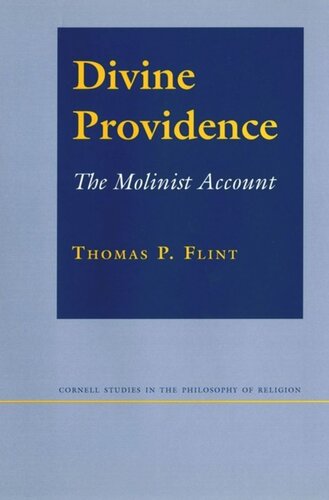

Most ebook files are in PDF format, so you can easily read them using various software such as Foxit Reader or directly on the Google Chrome browser.
Some ebook files are released by publishers in other formats such as .awz, .mobi, .epub, .fb2, etc. You may need to install specific software to read these formats on mobile/PC, such as Calibre.
Please read the tutorial at this link: https://ebookbell.com/faq
We offer FREE conversion to the popular formats you request; however, this may take some time. Therefore, right after payment, please email us, and we will try to provide the service as quickly as possible.
For some exceptional file formats or broken links (if any), please refrain from opening any disputes. Instead, email us first, and we will try to assist within a maximum of 6 hours.
EbookBell Team

4.4
82 reviewsThomas P. Flint develops and defends the idea of divine providence sketched by Luis de Molina, the sixteenth-century Jesuit theologian. The Molinist account of divine providence reconciles two claims long thought to be incompatible: that God is the all-knowing governor of the universe and that individual freedom can prevail only in a universe free of absolute determinism. The Molinist concept of middle knowledge holds that God knows, though he has no control over, truths about how any individual would freely choose to act in any situation, even if the person never encounters that situation. Given such knowledge, God can be truly providential while leaving his creatures genuinely free.
Divine Providence is by far the most detailed and extensive presentation of the Molinist view ever written.Middle knowledge is hotly debated in philosophical theology, and the controversy spills over into metaphysics and moral philosophy as well. Flint ably defends the concept against its most influential contemporary critics, and shows its importance to Christian practice. With particular originality and sophistication, he applies Molinism to such aspects of providence as prayer, prophecy, and the notion of papal infallibility, teasing out the full range of implications for traditional Christianity.